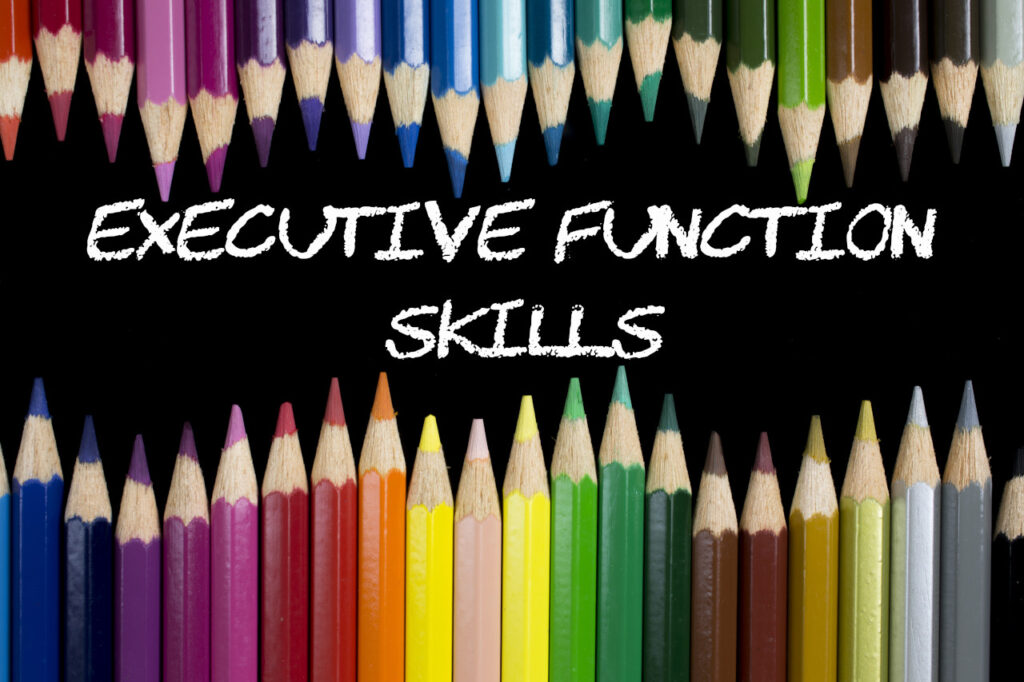Executive function captures all the cognitive processes that help us plan, regulate, and accomplish tasks. Focus is a primary component of executive function that allows for the actions of starting, stopping, and noticing one thing after another. It is how we keep in mind what we have just seen or heard, and ignore any other input that may be distracting. Another component of executive function is emotion management. Executive function is responsible for self- regulation, self-awareness, judgment, productivity, performance, and more.
If your child has struggled with any of the above, consider targeting these 7 areas to start the process of change:
- Inhibition and Emotional Control
- Encourage your child to slow things down and pause before responding to a situation.
- Create a plan in advance with your child for them to recover from becoming activated, impulsive, or overwhelmed.
- Initiation
- Break tasks down into smaller components with your child.
- Decrease avoidance by starting with something easy to get your child rolling.
- Organization
- Help your child recognize that each of their things needs a place to live (file, box, drawer).
- Encourage your child to put everyday things together and an easy to find spot (Ex: backpack, shoes, glasses, and jacket stay by the door for easier morning prep before school).
- Reflect on what systems of organization make sense in your child’s brain so that you can then create daily routines as a family that are easier to follow.
- Prioritizing
- Help your child make a large brain dump of all the tasks on their to-do list.
- Follow that large list with a list of things that are urgent and those that are important to your child.
- Break these lists down into an even smaller set of tasks- no more than 3 at a time.
- Sustained attention
- Consider possible obstacles to your child maintaining focus.
- Create a plan for returning to the task when drift-off occurs (ex: parent or teacher redirect).
- Working memory
- Have your child write things down in order to help with recall and reduce anxiety about forgetfulness.
- Use alarms, alerts, and notifications with your child.
- Have your child take notes during important times because writing helps encode information in the memory. (If too young to write, consider writing things down for them to ease anxiety).
- Consider accommodations for your child if notetaking is hard- recording things, having notes provided after class, having a notetaking helper.
- Goal-directed persistence
- Set realistic goals based on your child’s capabilities, not what you think they should accomplish based on comparison to other children.
- Work in timed periods with timed breaks.
Source: Understood.org
Title: How I explain the relationship between ADHD and executive function challenges by Dr. Thomas Brown
Source: Psychology Today
Title: ADHD and Stronger Executive Functioning Skills

